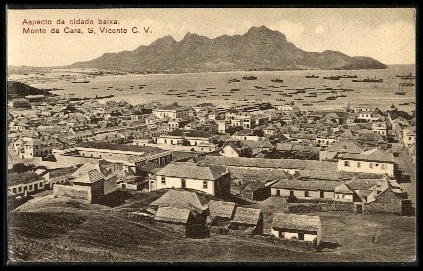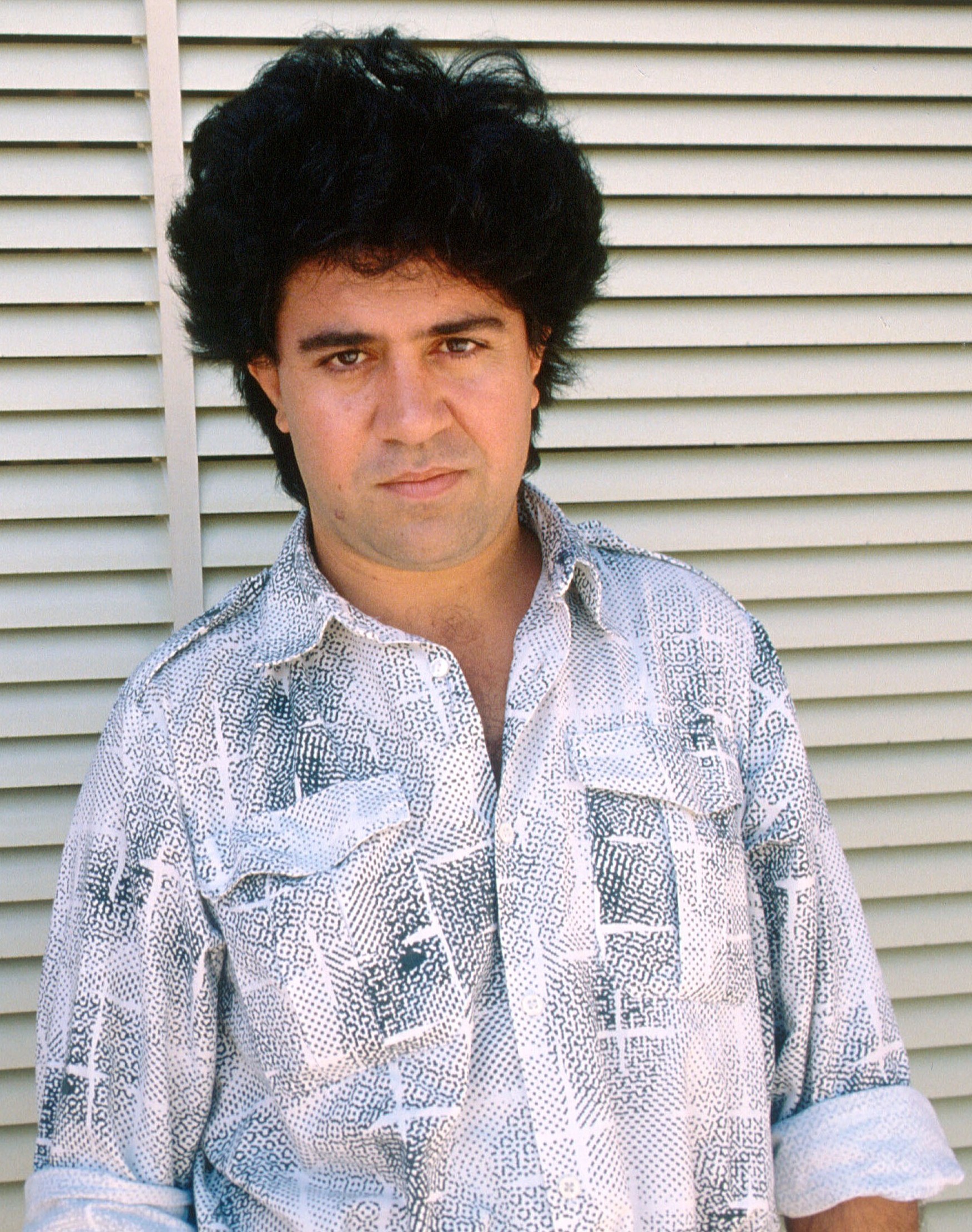|
Bau (musician)
Rufino Almeida (born 1962 in Mindelo, São Vicente), better known as Bau, is a Cape Verdean musician. His father, an instrument maker, taught him how to make and play the guitar, the cavaquinho and the violin. In 1994, he joined the touring band of Cesária Évora and in 1996 became her musical director. In September 1999, he moved on and his song "Raquel" was featured in Pedro Almodóvar's 2002 film ''Talk to Her''. He's toured with several other singers, including Hernani Almeida in 1999 and 2001. Some of his songs were written by Teófilo Chantre Teófilo Chantre (born 1964) is a Cape Verdean musician, first noted for his decades long collaboration with singer Cesaría Évora, and later for his own recordings. Life He was born on the island of São Nicolau, growing up with his grandpar .... His cousin, Tito Paris, is a famous singer. Notes External links * Audio clip (60 minutes)Cesaria Evora, Bau and Tito Paris.BBC Radio 3. Accessed November 26, 2010. 1962 birth ... [...More Info...] [...Related Items...] OR: [Wikipedia] [Google] [Baidu] |
Mindelo
Mindelo is a port cityCabo Verde, Statistical Yearbook 2015 Instituto Nacional de Estatística, p. 32-33 in the northern part of the island of São Vicente in . Mindelo is also the seat of the parish of Nossa Senhora da Luz, and the municipality of São Vicente. The city is home to ... [...More Info...] [...Related Items...] OR: [Wikipedia] [Google] [Baidu] |
São Vicente, Cape Verde
São Vicente (Portuguese for " Saint Vincent") is one of the Barlavento Islands, the northern group within the Cape Verde archipelago in the Atlantic Ocean, off the West African coast. It is located between the islands of Santo Antão and Santa Luzia, with the Canal de São Vicente separating it from Santo Antão. Geography The island is roughly rectangular in shape with an area of . From east to west it measures and from north to south .Cabo Verde, Statistical Yearbook 2015 Instituto Nacional de Estatística The island, of |
Cape Verde
, national_anthem = () , official_languages = Portuguese , national_languages = Cape Verdean Creole , capital = Praia , coordinates = , largest_city = capital , demonym = Cape Verdean or Cabo Verdean , ethnic_groups_year = 2017 , government_type = Unitary semi-presidential republic , leader_title1 = President , leader_name1 = José Maria Neves , leader_title2 = Prime Minister , leader_name2 = Ulisses Correia e Silva , legislature = National Assembly , area_rank = 166th , area_km2 = 4033 , area_sq_mi = 1,557 , percent_water = negligible , population_census = 561,901 , population_census_rank = 172nd , population_census_year = 2021 , population_density_km2 = 123.7 , population_density_sq_mi = 325.0 , population_density_rank = 89th , GDP_PPP ... [...More Info...] [...Related Items...] OR: [Wikipedia] [Google] [Baidu] |
Guitar
The guitar is a fretted musical instrument that typically has six strings. It is usually held flat against the player's body and played by strumming or plucking the strings with the dominant hand, while simultaneously pressing selected strings against frets with the fingers of the opposite hand. A plectrum or individual finger picks may also be used to strike the strings. The sound of the guitar is projected either acoustically, by means of a resonant chamber on the instrument, or amplified by an electronic pickup and an amplifier. The guitar is classified as a chordophone – meaning the sound is produced by a vibrating string stretched between two fixed points. Historically, a guitar was constructed from wood with its strings made of catgut. Steel guitar strings were introduced near the end of the nineteenth century in the United States; nylon strings came in the 1940s. The guitar's ancestors include the gittern, the vihuela, the four- course Renaissance guitar, and the ... [...More Info...] [...Related Items...] OR: [Wikipedia] [Google] [Baidu] |
Cavaquinho
The cavaquinho (pronounced in Portuguese) is a small Portuguese string instrument in the European guitar family, with four wires or gut strings. More broadly, ''cavaquinho'' is the name of a four-stringed subdivision of the lute family of instruments. A cavaquinho player is called a ''cavaquista''. Forms There are several forms of cavaquinho used in different regions and for different styles of music. Separate varieties are named for Portugal, Braga (''braguinha''), Minho (''minhoto''), Lisbon, Madeira, Brazil, and Cape Verde; other forms are the ''braguinha'', ‘''cavacolele''’, cavaco, machete, and ukulele. Portuguese The Venezuelan concert cuatro is very nearly the same instrument, but somewhat larger. Cavaquinho Brasileiro, cavaco, and cuatro The Brazilian cavaquinho is slightly larger than the Portuguese cavaquinho, resembling a small classical guitar. Its neck is raised above the level of the sound box, and the sound hole is usually round, like cavaquinhos from ... [...More Info...] [...Related Items...] OR: [Wikipedia] [Google] [Baidu] |
Violin
The violin, sometimes known as a ''fiddle'', is a wooden chordophone (string instrument) in the violin family. Most violins have a hollow wooden body. It is the smallest and thus highest-pitched instrument (soprano) in the family in regular use. The violin typically has four strings (music), strings (some can have five-string violin, five), usually tuned in perfect fifths with notes G3, D4, A4, E5, and is most commonly played by drawing a bow (music), bow across its strings. It can also be played by plucking the strings with the fingers (pizzicato) and, in specialized cases, by striking the strings with the wooden side of the bow (col legno). Violins are important instruments in a wide variety of musical genres. They are most prominent in the Western classical music, Western classical tradition, both in ensembles (from chamber music to orchestras) and as solo instruments. Violins are also important in many varieties of folk music, including country music, bluegrass music, and ... [...More Info...] [...Related Items...] OR: [Wikipedia] [Google] [Baidu] |
Cesária Évora
Cesária Évora GCIH (; 27 August 194117 December 2011), more commonly known as Cize, was a Cape Verdean singer-songwriter. She received a Grammy Award in 2004 for her album '' Voz d'Amor''. Nicknamed the "Barefoot Diva" for performing without shoes, she was known as the "Queen of Morna". Évora began singing as a young woman in bars in her hometown of Mindelo, and came to international prominence in the 1990s. Biography Early life Cesária Évora was born on 27 August 1941 in Mindelo, São Vicente, Cape Verde. When she was seven years old her father, Justino da Cruz Évora, who was a part-time musician, died, and at the age of ten she was placed in an orphanage, as her mother Dona Joana could not raise all six children. At the age of 16, she was persuaded by a friend to sing in a sailors' tavern. She grew up at the house in Mindelo which other singers used from the 1940s to the 1970s, at 35 Rua de Moeda. Other Cape Verdean singers came to the house, including Djô d'Eloy ... [...More Info...] [...Related Items...] OR: [Wikipedia] [Google] [Baidu] |
Pedro Almodóvar
Pedro Almodóvar Caballero (; (often known simply as Almodóvar) born 25 September 1949) is a Spanish filmmaker. His films are marked by melodrama, irreverent humour, bold colour, glossy décor, quotations from popular culture, and complex narratives. Desire, passion, family, and identity are among Almodóvar's most prevalent subjects in his films. Acclaimed as one of the most internationally successful Spanish filmmakers, Almodóvar and his films have gained worldwide interest and developed a cult following. Almodóvar's career came to during La Movida Madrileña, a cultural renaissance that followed after the end of Francoist Spain. His early films characterised the sense of sexual and political freedom of the period. In 1986, he established his own film production company, El Deseo, with his younger brother Agustín Almodóvar, who has been responsible for producing all of his films since ''Law of Desire'' (1987). His breakthrough film was ''Women on the Verge of a Nervous Br ... [...More Info...] [...Related Items...] OR: [Wikipedia] [Google] [Baidu] |
Hernani Almeida
Hernani Almeida (born 7 April 1978 in Sao Vicente, Cape Verde) is a Cape Verdean musician. In 1994 he formed his first rock band named What and has recorded and produced many albums. He was named Best Guitarist (2005) and Best Artist (2006) of the nation prize "Nos Musica" given to recognize Capeverdean artists. Biography Over the past two years in addition to recording his 1st solo CD, produced and directed musically also the last album " Vadu " and the first "Princesito", "Isa Pereira", "Eder", "Nho Nani" and he composed one music for the last disc of the Sara Tavares "Balancé", entitled " DAM BO", which was seen in Portugal as the best songs on the disc. At age 31, he is considered by many as one of the greatest exponents of the new generation of talent Creole. In 1994 he formed his first rock band What. After an invitation from Gerard Mendes (Boy G.), he started playing traditional music on a European tour. Since then, he started playing with the big names of Cape Verde ... [...More Info...] [...Related Items...] OR: [Wikipedia] [Google] [Baidu] |
Teófilo Chantre
Teófilo Chantre (born 1964) is a Cape Verdean musician, first noted for his decades long collaboration with singer Cesaría Évora, and later for his own recordings. Life He was born on the island of São Nicolau, growing up with his grandparents on São Vicente Island after his parents left to find work in Europe, a common occurrence in the country. His father ended up in Rotterdam and his mother settled in Paris after a time in Hamburg. He moved to be with his mother at age 14, but he missed his grandparents, leading to an attachment to the concept of ''saudade'', the Portuguese word for longing and present in much Cabo Verde music. He learned the guitar at age 16 and continues to live in France. Career Chantre first became known for his work composing songs for Cape Verde singer Cesária Évora, who he met in Paris in the 1990s, after a concert both performed in. Shortly after, her producer asked me to write for her. He was responsible for three tracks on her ''Miss Perfum ... [...More Info...] [...Related Items...] OR: [Wikipedia] [Google] [Baidu] |
Tito Paris
Tito may refer to: People Mononyms *Josip Broz Tito (1892–1980), commonly known mononymously as Tito, Yugoslav communist revolutionary and statesman *Roberto Arias (1918–1989), aka Tito, Panamanian international lawyer, diplomat, and journalist *Tito (footballer, born 1943), full name Nílton Rosa, Brazilian football forward *Terry Francona (born 1959), nicknamed Tito after his father, baseball manager with Cleveland Guardians * Tito (footballer, born 1946), full name Tito José da Costa Santos, Portuguese footballer * Tito (footballer, born 1980), full name Bruno Miguel Areias de Sousa, Portuguese footballer *Tito (footballer, born May 1985), full name Alberto Ortiz Moreno, Spanish footballer *Tito (footballer, born July 1985), full name Roberto Román Triguero, Spanish footballer Family name *Dennis Tito (born 1940), American businessman and astronaut * Diego Quispe Tito (1611–1681), Peruvian painter *Ettore Tito (1859–1941), Italian painter *Paul Tito (born 1978), New ... [...More Info...] [...Related Items...] OR: [Wikipedia] [Google] [Baidu] |




